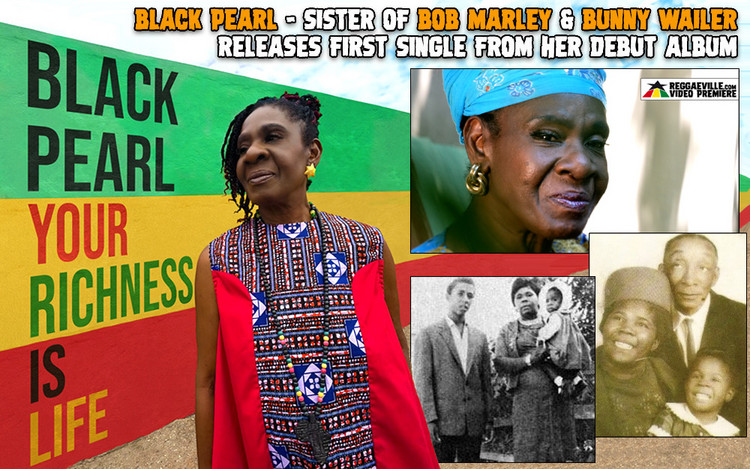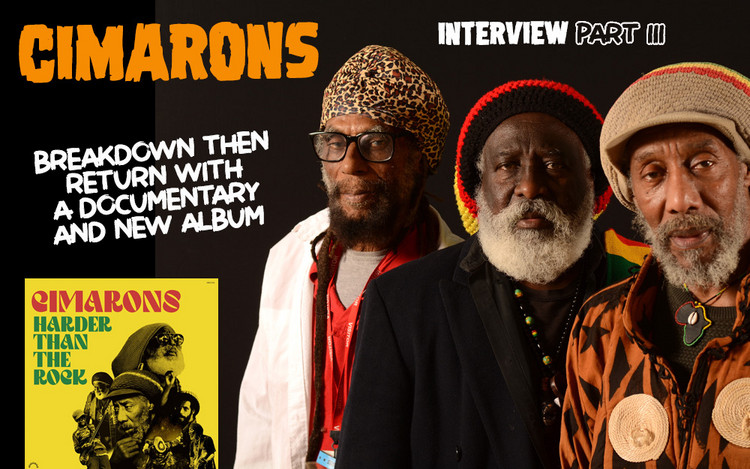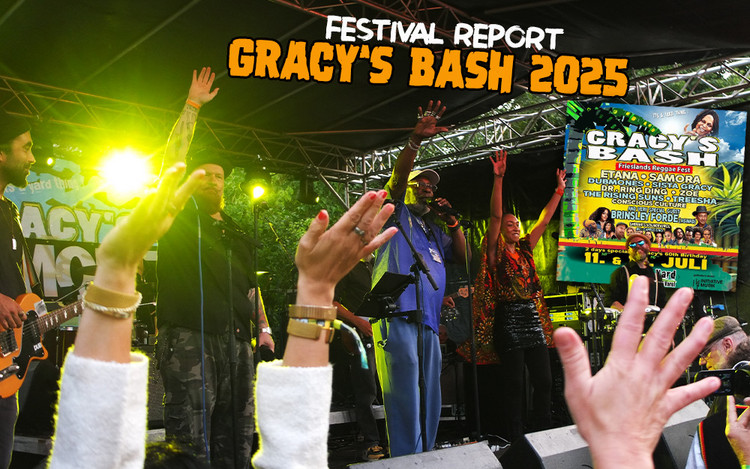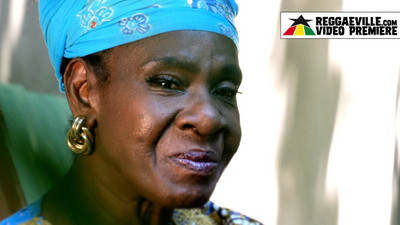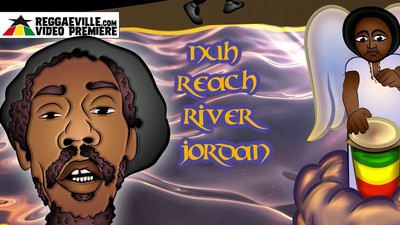Clinton Fearon ADD
Interview with Clinton Fearon
03/19/2014 by Angus Taylor
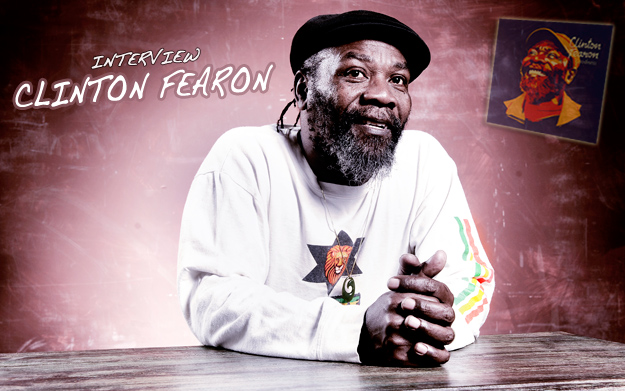
Clinton Fearon joined Jamaican harmony trio the Gladiators in 1972, forming their classic line-up with founder Albert Griffiths and Gallimore Sutherland.
In 1987 while on tour in the USA he departed the group and struck out for himself as a solo artist - continuing the rural sound of roots reggae for which the Gladiators were famed.
Where the Gladiators’ output since then has been variable, Seattle-based Fearon has maintained a consistency – even if he has felt the financial pinch that affects all independent music.
With his new album Goodness due out on March 24th, distributed in Europe by France’s Chapter Two, Angus Taylor linked a jovial Fearon to discuss how the record fits into the musical and physical climate of yesterday and today.
Your last album Heart and Soul was an acoustic album of songs you wrote in Gladiators. Now you are back with an electric album. Was Heart and Soul a diversion of sorts?
I didn’t stray from the electric so I guess it was a diversion in a good way! I love the acoustic still because it started there really. You sit back in the yard with your acoustic guitar strumming away and ideas come. You ride along with it and then you modify and slick it up later on and electrify it. It’s like going back to the roots of the electric albums anyway.
"WITH EACH ALBUM, I GROW A LITTLE BIT MORE"
In the past you’ve said that with electric full arrangements the clarity of a song can get lost. Yet with your new electric album Goodness, it seems like there’s a new clarity to the songs, the arrangements, the production, the messages.
Partly it’s that with each album, I grow a little bit more. In terms of lyrics, production, melody sometimes, I try to grow each time. But I do think the acoustic album has had some influence on this one as well. It sort of dragged me back in the past a little bit, in the 70s and 80s, when instrumentation and melodies were prominent and so on this album, some of that influence tipped over a little bit! (laughs)
Would you say returning to Gladiators songs with Heart and Soul you made peace with that period in your life?
No, no, no. It’s not even making peace. I kind of made peace with it a long time ago from when I decided “You know what? I’m going to do my own thing”. There was one time when I heard that some unkind words passed so I was a little bit disappointed that one didn’t and couldn’t understand the journey and know that it was time to move on. I gave up that long ago. I appreciate my past because my past is what makes me who I am today! It’s a rough journey but there are some sweet moments there too. I learned a lot being in Gladiators from the people I met and it’s part of the journey.
You talked about growth. With each album are you refining the same thing again and again, rather than jumping all over the place throwing out ideas here there and everywhere?
(laughs) I’m just trying to better the thing. Each album when it is finished, including this one, I know there are flaws. Some I can tell later on but I can already tell some of the flaws. For example when we went in to do over the vocals, especially the lead vocal, after I had done the harmonies I thought “Time to do a good one of the lead now” because it was mostly like a demo for the harmony to follow. But when I listened back to it I thought “You know what? I might not get the same vibe. I love the vibe of these ones here. They’re kind of free and hopping along so I’m not going to mess with it!” So there are flaws on it but listening back to I decided I was going to let those flaws go. I don’t want to pretty it up too much and lose the soul of it.
Well as they say “Every spoil is a style”.
(laughs a lot) Yes! Good one!
When you did the Mi De Yah album you decided to take up the bass as you did in Gladiators. How are the instruments distributed this time around?
For this album again I did the bass, most of the guitars, most of the vocals, percussions, a lot of things. And I feel no way doing that because I kind of have a good idea of what I want to hear and I don’t think the musicians feel any way about it. But keyboards I don’t play, just to fool around with, drums I do a little bit but again it’s mainly just to play around with – so the things I am not good at I don’t touch it! I know I can play some percussion and a little guitar and the vocal – unless I’m looking for a different sound. Plus when I’m in the studio everybody has different things they do so if people cannot show up I don’t cancel the studio time – I just go in and work on it.
Give me an example of when you have been looking for a different sound?
Come By Yah I was looking for a rumba sound on and I didn’t find one. The time was booked so we just used guitar instead. Mark Oi did a guitar part on it [sings the African high life style lead guitar line] whereas I’m doing the pluck. The reason we wanted a rumba sound was to have a strong African sound to it, which we didn’t get. But I’m totally satisfied with what happened.
Mel Dettmer is still the engineer for the project. Was it the Give and Take album that she joined you?
Yes, she is and that’s right.
For me that was the album when your thing really arrived at the sound you’ve been building on ever since.
Well what happened was she loved my work and before that I don’t think she knew a whole lot about recording and mixing reggae, so because I was there we worked good together. She listens and learns and I’m learning too about the production end of it. Of course we make boo-boos but for the next one we try to fix it!
"DO WHAT WE LOVE AND LOVE WHAT WE DO AND TAKE CARE"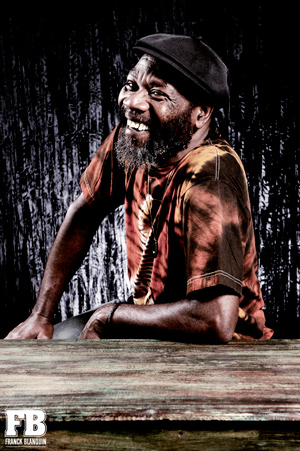 Some reggae artists see their job as simply to entertain. Some chastise their audience for wrongdoings in their messages. But your messages and music, particularly on this album, are critical but very soothing – almost like musical therapy.
Some reggae artists see their job as simply to entertain. Some chastise their audience for wrongdoings in their messages. But your messages and music, particularly on this album, are critical but very soothing – almost like musical therapy.
Oh thanks man. You are seeing something there. The vibe is that as human beings we all suffer the pangs of society and injustices. My vibe is to point out those avenues that say “Hey, there are injustices – but we don’t have to kill ourselves because of that.” We don’t have to stop living. We don’t have to stop ourselves from laughing if we want to laugh or smiling if we want to smile. Also, if we can recognise that we are just as important as the next person beside us then right there we feel a sense of worth. One way to do it is to do what we love and love what we do and take care. Don’t feel like we are at the bottom of the pit – even if sometimes situations seem like that! (laughs) It’s like a light at the end of the tunnel.
For instance in the song The Hunter you are critical of the hunter but you also sound very sympathetic to the hunter as well.
Well sometimes the hunter doesn’t know better! The hunter didn’t know what was happening until he lost his gun! When he lost he gun he realised “Ooops, I’m alone here”. Then he realised that the Congo Man and the lions and tigers and the birds and the bees are not there to hurt him. They’re just checking him out and he’s running away from them! Fear is his big problem. That’s why he had the gun in the first place. If you can throw away the fear and don’t be so afraid of your surroundings and love your surroundings you’ll realise your surroundings will love you right back.
Similarly with Blame Game you are critical but you are not chastising – you are gently encouraging somebody to move in a particular direction.
Yes, to open their eyes and to see that sometimes we’re pointing the finger at someone else when we are the one to point the finger at. It’s not the next person. Or if it’s anyone at all, it’s all of us. We’re so quick to blame somebody else other than ourselves. That’s what I’m trying to point out – look at yourself before you look at the other person. Like they say “If you live in a glass house don’t throw stones”.
Your music has always had a very rustic sound – how inspired are you by the countryside?
Very much. I was born and raised in the country. I went to Kingston when I was 15 going on 16 but I never forgot the country. Living in the country those years is what kept me going through the years I was living in Kingston. Each time I would remember how beautiful and how kind the country really was. You’d cut a banana and share it with your next door neighbour. They’d pick some mango and share it with you. When I came to Kingston I realised I had to buy bananas, mangos and everything. That was a little bit strange for me at first and then I realised that was how Kingston is. Everybody I would see I would say “How you doing?” “Morning!” because that’s what I would do in the country and then I realised “Oops, that’s not what people do here” (laughs).
When you are in Seattle and in France – do you like to go to the countryside and get inspired?
Actually we go to Alsace because my wife and her family are from there. We go down there almost every time we come to France. When we don’t get to go down there it’s sad like “Ok, alright”. I love the country, man. I love hills and greens because that’s life. And it’s part of the influence on this album too because a few years ago before we actually recorded we went to Jamaica my wife and I to spend some time with family. Come By Yah, Talk With A Friend and the rhythm and bassline to Galang were written there. I recaptured some energy there.
Recently you reached out to your fans to help fund your Goodness European tour with Kickstarter. You didn’t hit your target but the tour is still going ahead.
Yes, the tour is still going ahead but not with all of us. Instead of eight on stage it will be six on stage.
Which instruments are staying behind?
Lead guitar and saxophone. I have two keyboard players and three vocal parts. I will take up the slack on the guitar, one of the keyboard players is mostly going to play lines with some bubble and one just plays skank. Because the other two parts are mostly lead parts those are the ones – unfortunately because I love them dearly – that we see more fit to stay behind.
People have been saying that recorded music isn’t selling for some time. People are turning to alternative forms of funding. Recent reports in Jamaica say album sales in particular are very low. Does the album have a future?
I’m going to say yes. If 100 people buy it then to me that’s something. Because those 100 people are going to tell other people about it. In terms of money from a while back you don’t make much money off records. Record sales have gone down from when you had 100,000 sales to 1000. But if 1000 people buy the album I’m happy – of course I’d be more happy if it reached 100,000 – but if I make a good album then the album is a success. I feel proud of it no matter how much it sells.
"I AM STILL A PART OF THE 1970s"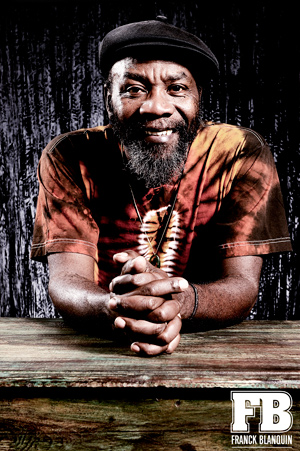 As a member of the Gladiators you were inspired by classic American soul music. The intro to the song Wi No Know It starts off like a classic 1970s soul song and then goes seamlessly into roots reggae. Of course, true heads know that these musics are friends but it is still remarkable how seamless the transition is.
As a member of the Gladiators you were inspired by classic American soul music. The intro to the song Wi No Know It starts off like a classic 1970s soul song and then goes seamlessly into roots reggae. Of course, true heads know that these musics are friends but it is still remarkable how seamless the transition is.
Well we just go in studio and try a thing and see what happens! Some people have everything written down before they go into the studio but I have everything in my head! I love Motown and we were going for a Motown type of thing. The thing is I am still a part of the 1970s. I’m not one of those artists who thinks because they were there at the time they know all of that and they’re done with it and want to move on. It’s still a part of me.
Who are your favourite soul singers?
Otis Redding, Marvin Gaye, The Temptations, The Impressions. And there was a lady – Mahalia Jackson. Her singing went straight to your gut!
In roots reggae lyrics many artists talk to with complete certainty of knowing things. Yet here we have a song that is quite comfortable with not knowing what is to come…
When we know it all then we stop growing. That’s my philosophy anyway. There’s always room for growth and for knowing more about the thing you think you know. If you look at it deeply and keenly you realise there are some things about it you didn’t know. It’s not just reggae artists – so many of us think we know when we don’t. We know some things yes but we don’t really know.
It’s a long time we’ve been talking about how pollution is messing up creation. Not just Jamaican singers but people from different walks. Professionals make studies and say “We are having a problem here”. Others bounce back and say “What are you talking about?” Now there is no doubt that pollution is really hitting us hard and there are changes. You can see certain mountains where we don’t have ice any more. Bees get scanty because of fertilisers. I remember in Jamaica when they used to carry spray planes to kill disease from the bananas. It wasn’t only killing the bananas – it was getting in the water, in the springs. Three quarters of our native coconuts died off because of it at the same time. At the same time they were spraying they were introducing the little dwarf coconut that grows only so tall and has coconuts. You taste the coconuts and they are fresh and have no taste. But somebody’s making some money. You kill your own just for money.
So you’re saying they think they know what they’re doing but they don’t? But doesn’t the same uncertainty apply on both sides?
They don’t know what they’re doing. But at the same time we don’t know either. We all need to stop a while, take a look, check life, check ourselves first. How much do we really know about our own selves and own little surroundings? Then you can spread out. There’s so much about the earth that we don’t know yet but we think we know about the moon and where it’s situated and all these things. It’s good to know these things but how is your toe? How much of it do you really know? (laughs)
My little message is just – take a step. Pause for a minute. Technology is great. Right now we can be talking [on Skype] and I am looking at you and you are looking at me which is wonderful. But the same technology for a lot of us is our only way of communicating. I can’t look you in the face or call you on the phone? No – we text. This [Skype] is too personal for a lot of us these days – especially for the younger generation. We feel like “This is civilization. I text you and you text me”. But for me civilization is where I can look you in the eye and you look me in the eye. You can see my hurt, I can see your hurt. You can see I laugh, I see your laugh and know you’re ok. I can see the look in your eye and know you’re not fine and that something is wrong. If we text how can I know that? I can fool you with words and we lose that soul connection. 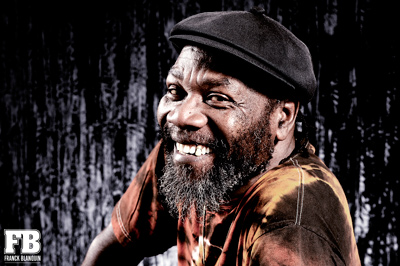 You told me in the past that you like to work with women. Your engineer Mel is female and you met your wife because out of a group of journalists you chose to speak to her because she was a woman. Do you consider yourself a feminist?
You told me in the past that you like to work with women. Your engineer Mel is female and you met your wife because out of a group of journalists you chose to speak to her because she was a woman. Do you consider yourself a feminist?
I’m a humanist. Wherever good is I appreciate good whether it’s female or male. If someone’s a bad ass bass player and I need a bass player I’m not waiting until I get a male. Music is music and work is work. So if the work is getting done then the vibe is good.
Finally, you mentioned about unkind words when you left the Gladiators but you have been in touch with Clinton Rufus and Gallimore Sutherland in the last few years. Have you been in touch with Albert since?
Me and them are alright man. I haven’t talked with Albert in many years. I tried to get hold of him but I understand he’s a little bit on the reserved side so I don’t push it.
PHOTOS BY FRANCK BLANQUIN




